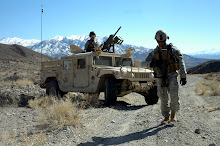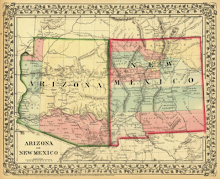By Steve Hammons
(This article was posted 3/23/15 on the CultureReady blog of the U.S. Defense Language and National Security Education Office.)
Read any good books lately?
How about a compelling TV drama or movie? We all like a good story, and good
stories can affect us in significant ways.
As a result, the U.S. Defense
Advanced Research Projects Agency (DARPA) has been researching how storytelling
affects you, me and other people around the world.
Throughout human history we
have been telling and listening to stories. Ancient humans sat around the
nighttime campfire and shared tales with the clan and tribe. Oral histories
were passed on to the next generations, often in story form. And, of course, human
societies and cultures used the written word to tell their stories.
Based on this, researchers at
DARPA indicate that we may be somewhat hard-wired to respond to such narrative
stories. A DARPA project called “Narrative Networks” explores the neurobiology
of listening to stories and how attitudes and behaviors can change as a result.
A story may cause us to look
at something in a new way and change our views about people, life and the world
around us. Storytelling can change our behavior, for the better or worse. The
human tradition of storytelling has significantly influenced individuals,
groups and societies, according to DARPA researchers.
POWERFUL INFLUENCE
On the DARPA website, the
Narrative Networks research page says, “DARPA launched the Narrative Networks
program to understand how narratives influence human cognition and behavior,
and apply those findings in international security contexts.”
The DARPA Narrative Networks
webpage asks, “Why do people accept and act on certain kinds of information
while dismissing others?” Answers to this and other questions “have strategic
implications for defense missions,” the DARPA statement claims.
An article on the Live
Science website about the project referenced DARPA language during the start-up
of the program: "Narratives exert a
powerful influence on human thoughts and behavior. They consolidate memory,
shape emotions, cue heuristics and biases in judgment, influence
in-group/out-group distinctions, and may affect the fundamental contents of
personal identity."
The Live Science article also
noted, “Despite the functional goal, the early
parts of this program seem more like a literature class at a liberal arts school than a
secretive military operation.”
Wired also covered the
program and reported in an article, “Another reason the Pentagon would want to
spend time upping its sensitivity quotient is because of an ongoing effort on
its part to understand the ‘human terrain’ of the
battlefields in which they fight.”
An Information Week article on the program noted, “The agency [DARPA] said that because
of these influences, narratives play an important role in the context of
security during military and intelligence engagements.”
In addition, DARPA researchers say that understanding how storytelling affects human neurobiology may lead to insights about helping people with post-traumatic stress disorder (PTSD).
MEANINGFUL
OR MANIPULATIVE
Storytelling has also been put forth by marketing people as a
method in advertising, brand identity and customer/consumer acquisition and
loyalty.
An article in today's New York Times said, “It’s been called a
strategic tool with ‘irresistible power’ by Harvard Business Review and ‘the
major business lesson of 2014’ by Entrepreneur magazine. What exciting new
21st-century technology is this? The age-old art of storytelling – something
humans have done since they could first communicate."
"Learning
– or relearning – how to tell stories requires some skill. And consultants are lining up to teach it – sometimes
for a hefty fee,” the Times article stated.
The
DARPA project on storytelling is part of a much larger recognition that stories
seem to affect people on deep levels that we may not fully understand. There
are indications that human neurobiology and neurochemistry may play a role.
Chemicals in our brains and bodies may be released when we are exposed to a
story that resonates.
Today,
stories are told via many kinds of open-source media platforms and devices. TV,
movies, digital, print and other media all serve as types of open-source
intelligence for people around the world.
And
there are many kinds of stories to hear.
Which
ones click? What stories use "positive psychology" and resonate as truthful and meaningful, while others are
recognized as false and manipulative? What storytelling lifts us up, or brings
out the worst in us. What narratives take us to a better world, or to “the dark
side?”
The
DARPA study may find some answers.

























































































































































































